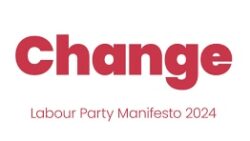England is both an increasingly tolerant and open society and a more divided place, according to the latest ‘Fear and Hope’ survey published this week by Hope not Hate.
In its fourth survey of attitudes to race, faith, belonging and identity since 2011, the anti-extremist campaign group finds that England is more tolerant and open than it was six years ago, despite recent turbulent events such as the four terrorist attacks in the last three months, the Brexit negotiations and the Grenfell fire.
However, it is also more divided, especially in responses to Brexit with “those most opposed to and supportive of Brexit showing little sign of ever compromising”.
Described as “the most detailed survey of its kind”, Fear and Hope’s findings provide “a snapshot of the nation’s views”. They are based on the responses of more than 4,000 people to 140 questions about current events, looking in particular at economic pessimism, the effects of the Brexit vote, the recent attacks on Manchester and London and responses to the Grenfell Tower fire.
Encouragingly, it found that 55% of people think immigration has been good for Britain, up from 40% in 2011, while almost 90% believe immigration is essential and that economic need should determine future levels.
However, attitudes towards Muslims and Islam have worsened, with just over half (52%) saying Islam poses a threat to the west, and 42% saying they are more suspicious of Muslims as a result of the recent terrorist attacks.
“These are worrying results and clearly more must be done to tackle the rise of Islamophobia,” says the group’s Nick Lowles. “Thankfully the vast majority (77%) stand firmly against the conflation of extremists’ actions with an entire religion.”
The survey divides the population into six identity ‘tribes’ based on their attitudes to immigration, and reveals stark divisions in the way some see the issue. For example, just 4% of the ‘active enmity’ tribe believe immigration has been good for the country while 96% of the ‘confident multicultural’ group agree with this statement.
Attitudes towards race, faith and belonging have also become increasingly polarised and the report warns that a post-Brexit economic downturn “could well trigger increased fears and hostility towards immigrants and minorities”.
However, there is no sign that the recent terror attacks have fundamentally changed the outlook of society. The vast majority of people (77%) are firmly against the conflation of extremists’ actions with an entire religion, although there has been a hardening of Islamophobic attitudes among people more sceptical about modern society.
On the other hand, sympathy for English nationalists has fallen despite a growing consensus that “British values are in decline”.
“Political events of the last years have dramatically split the country,” the report concludes. “While in many ways we are more hopeful, fears have become more engrained and tensions are high. Faith, integration and terrorism will all be important challenges for the coming years, while Brexit will determine the country’s future.”
Lowles adds: “There is some welcome news in our survey, but also areas of deep concern. As Britain enters the political and economic uncertainty of Brexit, coupled with the threat of further terrorist attacks, there are real dangers that the divisions and anxieties in society will widen.”
—-
An overview of the Fear and Hope 2017 survey can be found here.



